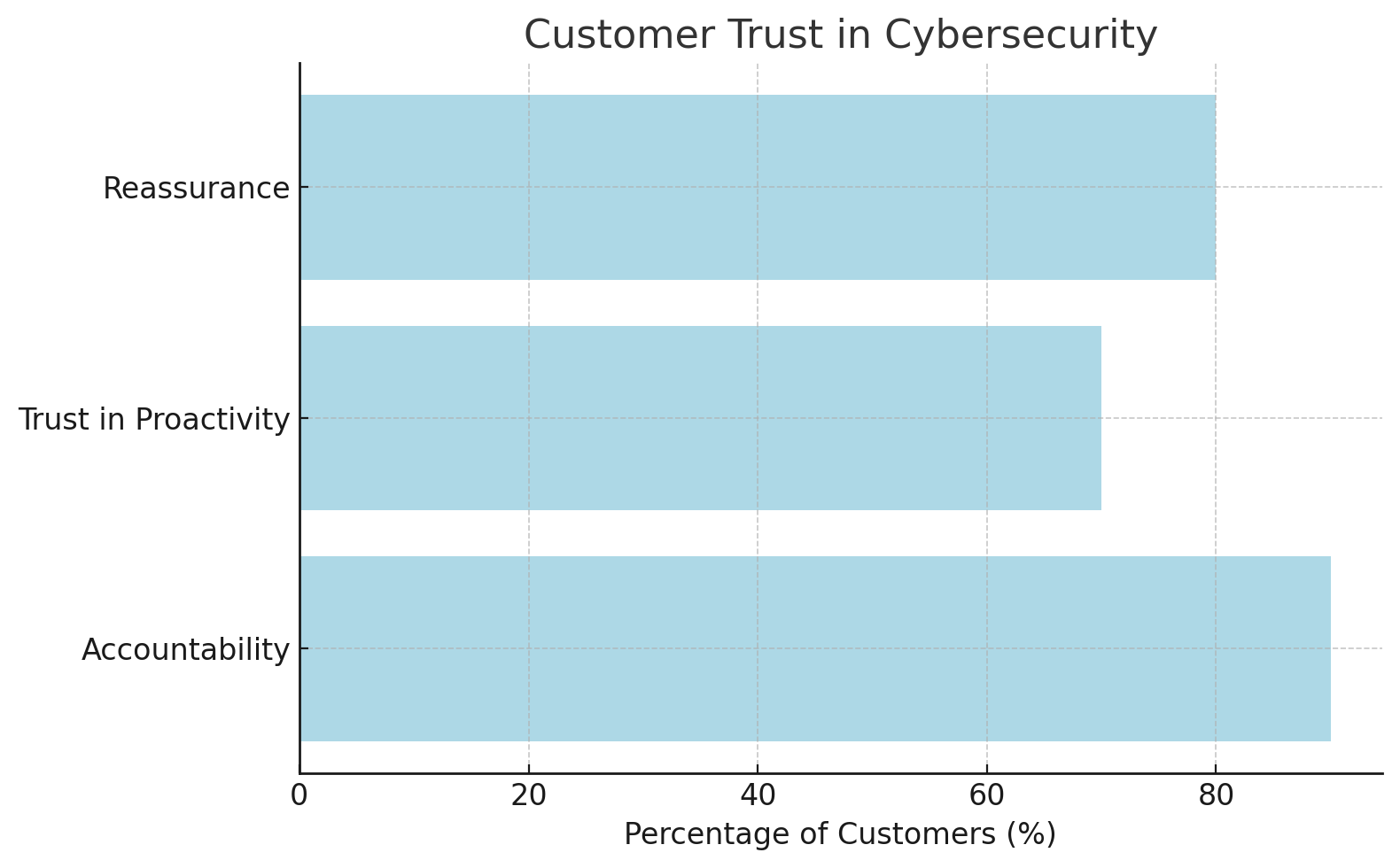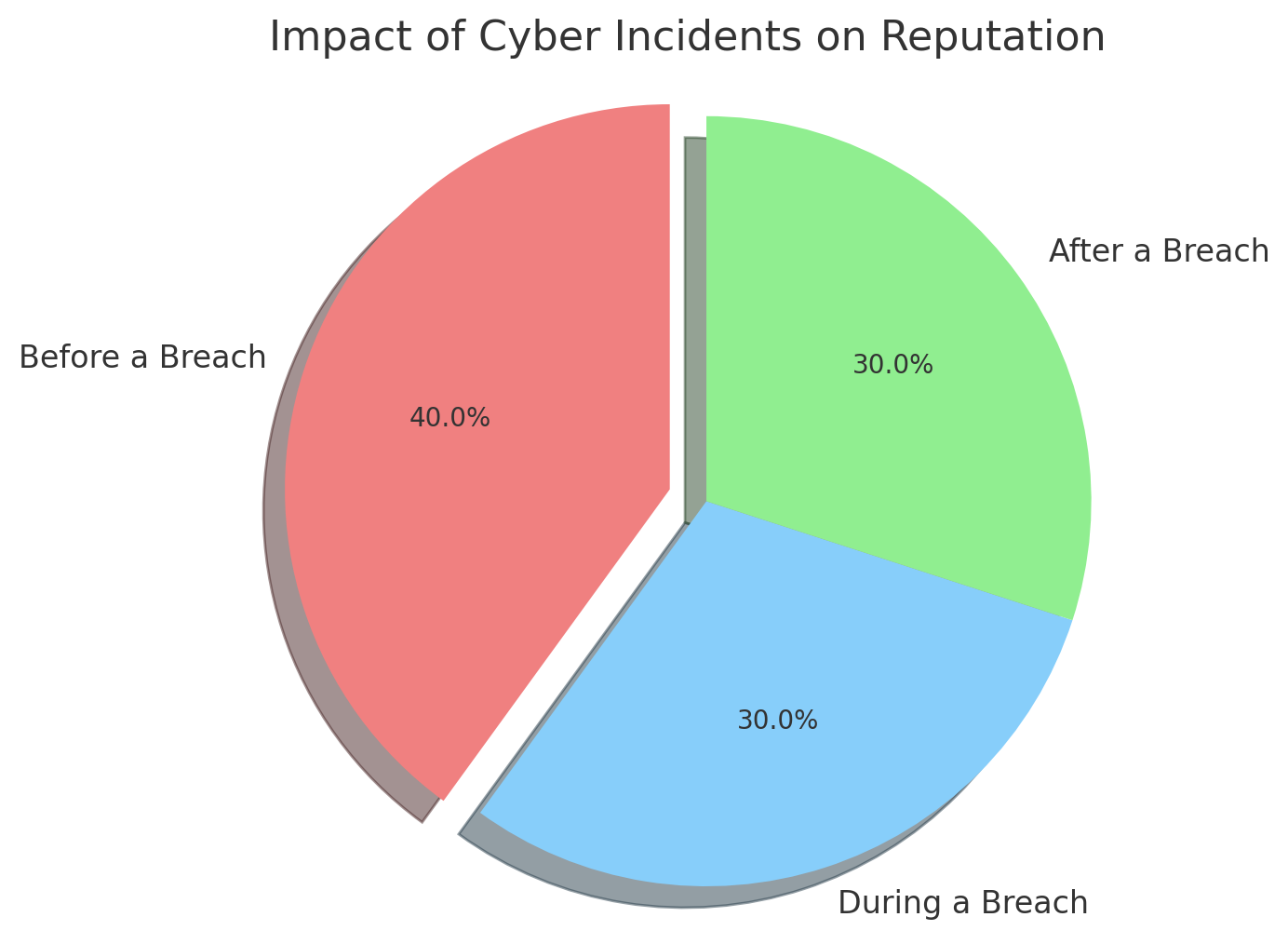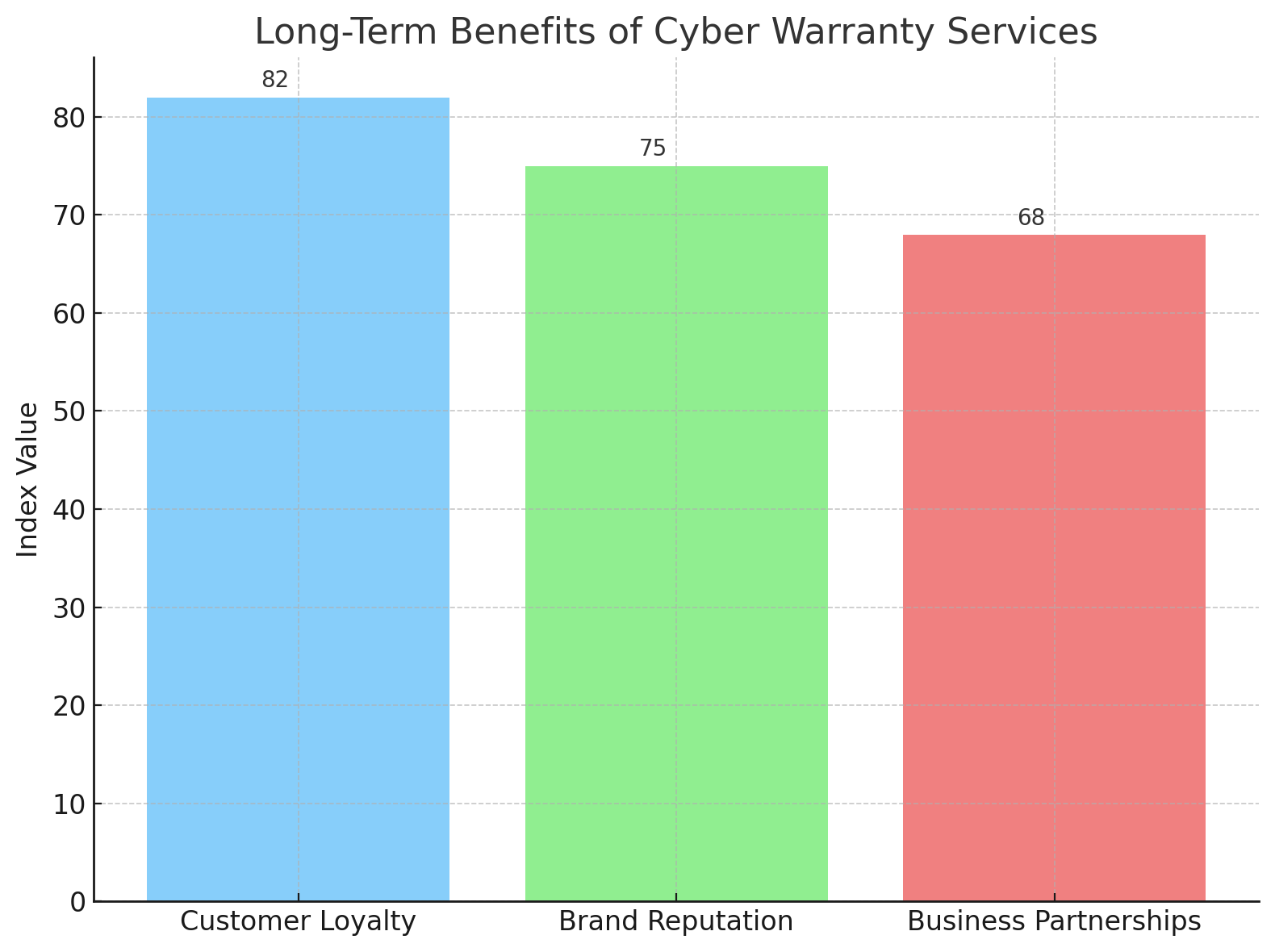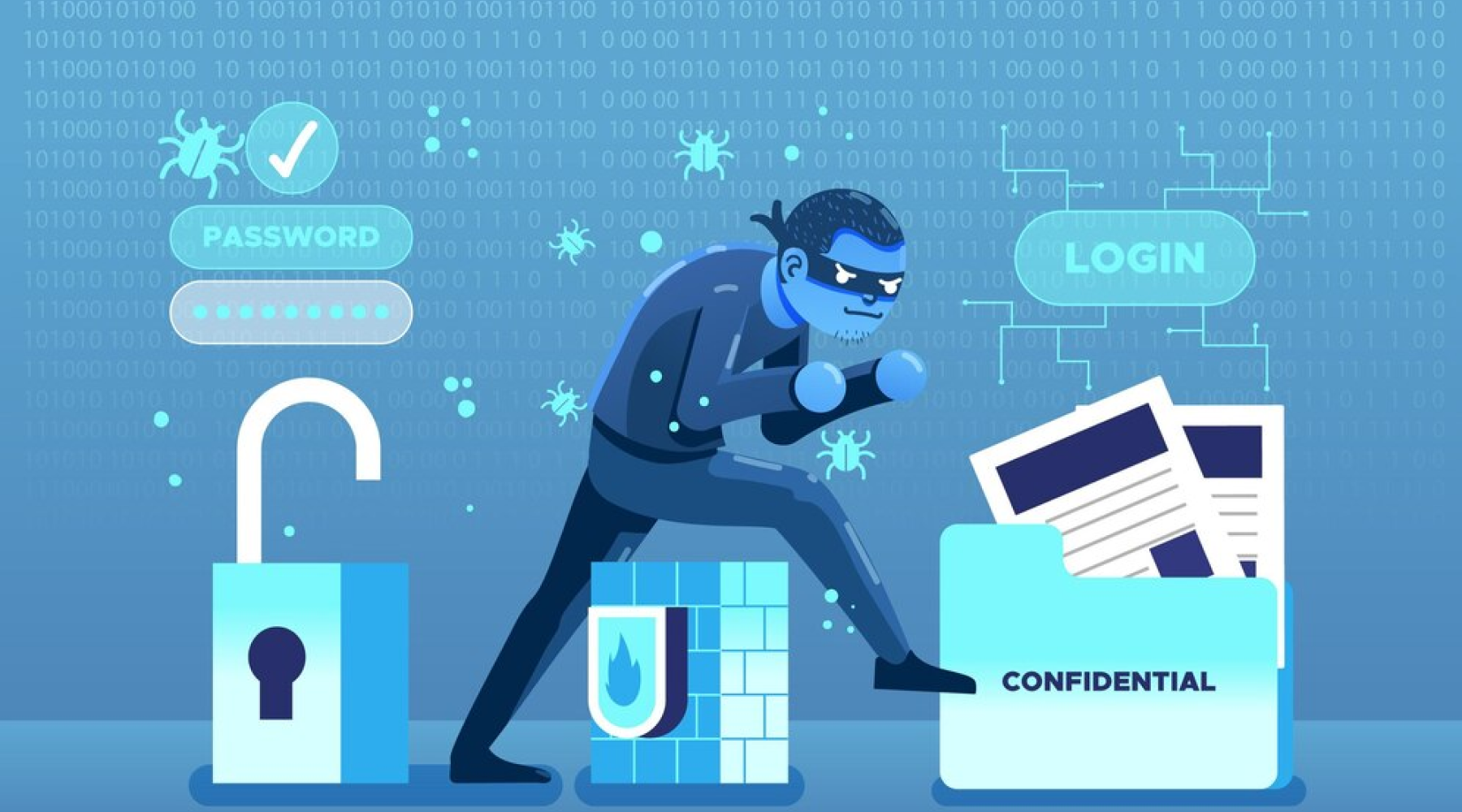In the digital transformation era, businesses are constantly threatened by cyberattacks. These attacks not only lead to financial losses but can also highly damage a company’s reputation. For this reason, building and maintaining customer trust has become increasingly dependent on how well a business handles cybersecurity.
One effective way to bolster this trust is through adopting cyber warranty services. But how exactly can these services influence customer perceptions and enhance business reputation?
The Critical Role of Cybersecurity in Establishing Trust
As customers become more aware of the risks associated with sharing personal data online, their expectations of businesses have evolved. They now demand higher levels of security and transparency from the companies they engage with.
A study by PwC found that 87% of consumers will take their business elsewhere if they don’t trust a company to handle their data responsibly.
This change in consumer behavior underscores the importance of cyber warranty services. By offering these warranties, businesses can demonstrate their commitment to protecting customer data, thus fostering a sense of security and trust.
Customers are more likely to trust companies that proactively manage cybersecurity risks, knowing their personal information is safe.

Why Cyber Warranty Services Matter to Customers
- Reassurance: Customers feel more secure knowing their data is protected.
- Trust in Proactivity: Businesses that take preemptive measures are seen as more reliable.
- Accountability: Companies with warranties are perceived as being more responsible.
The Ripple Effect of Cyber Incidents on Reputation
Reputation is a vital asset in today’s competitive market. A single cyber incident can ripple effect, eroding customer trust and tarnishing a company’s brand image.
According to a study, 66% of US customers said they would not trust doing business with a company that had suffered a cyberattack or data breach in the past year. This statistic highlights the potential long-term damage a cyber incident can inflict on a business.
Cyber warranty services can play a pivotal role in mitigating these risks. Providing a financial safety net and demonstrating that a company is prepared to handle cyber incidents, these services help maintain customer trust even in the face of a breach.
Moreover, businesses that advertise using cyber warranty protection can differentiate themselves from competitors, enhancing their reputation as a company prioritizing customer security.

How does it Influence Business Reputation
- Before a Breach: Strengthen reputation by showcasing proactive security measures.
- During a Breach: Maintain customer confidence with visible warranties and quick responses.
- After a Breach: Faster reputation recovery due to the perceived preparedness and responsibility.
Transparency as a Catalyst for Building Trust
Transparency about cybersecurity practices is crucial in an age where data breaches continuously make headlines. Companies that openly communicate their security measures, including their reliance on cyber warranty services, are more likely to earn customer trust. Transparency can be demonstrated through detailed security sections on company websites, regular updates in customer communications, and clear explanations during sales processes.
For instance, businesses can create dedicated web pages that outline their cybersecurity policies and the role of cyber warranty protection in their overall strategy. This not only reassures customers but also enhances the company’s credibility and reputation in the market.
How to Effectively Communicate
- Website Security Pages: Detail the warranties in place and how they protect customer data.
- Customer Updates: Regularly inform customers about security enhancements and warranties.
- Sales Discussions: Use warranties as a selling point to differentiate from competitors.
The Long-Term Strategic Benefits
While cyber warranty services provide immediate protection against financial losses, their long-term benefits extend far beyond that. Companies investing in these services are better positioned to build lasting customer relationships, attract new business, and foster sustainable growth.
A report by IBM reveals that businesses with strong security frameworks, including warranties, can reduce the cost of a data breach by up to 26%. This reduction is not only monetary but also reputational, as customers are more forgiving when they see that a company has done everything possible to prevent an incident.
Additionally, businesses prioritizing cyber warranty protection are more likely to secure partnerships with other companies that value cybersecurity. In industries such as finance and healthcare, where regulatory requirements are stringent, having these warranties in place can be a significant advantage.

The Long-Term Payoffs
- Enhanced Customer Loyalty: Trust built through security leads to repeat business.
- Improved Brand Reputation: Standing out as a leader in cybersecurity.
- Increased Partnerships: More collaboration opportunities with security-conscious companies.
Conclusion
In conclusion, cyber warranty services are not just an added layer of protection but a strategic investment in building customer trust and enhancing business reputation. In a world where cyber threats are ever-present, these services offer a way for companies to differentiate themselves, gain customer loyalty, and secure their place in the market.
As cyber threats continue to grow, the importance of cyber warranty companies in shaping customer perceptions and safeguarding business reputation will only grow.
Businesses that prioritize cyber warranty protection are not just protecting their assets but investing in a future where trust and reputation are key drivers of success.
Also Read: 10 Key Features of a Robust Cyber Protection Warranty





